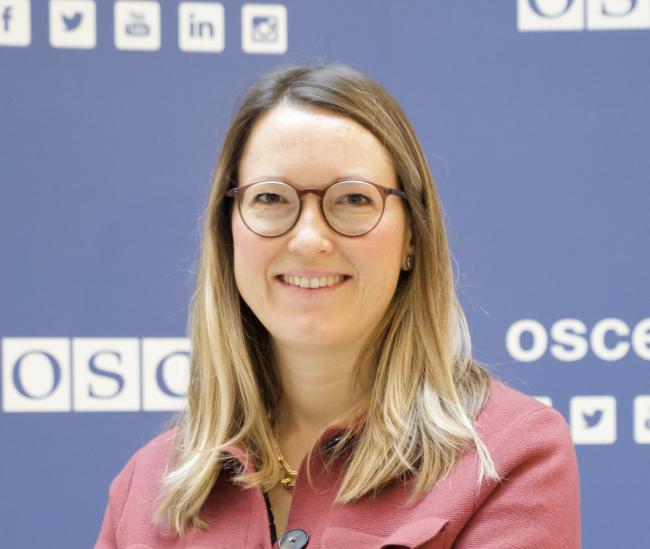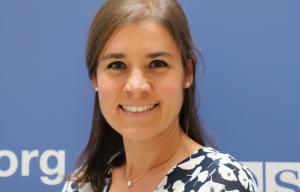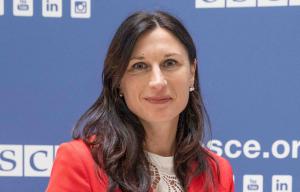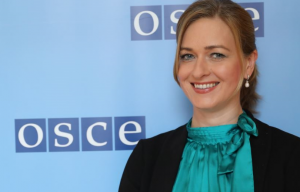Martha Stickings
Deputy Head of SPMU, Adviser on Cybercrime - OSCE Secretariat

Can you share a bit about where you've worked before joining the OSCE and what your responsibilities were?
Prior to joining the OSCE, I worked at the Council of Europe’s Cybercrime Programme Office in Bucharest, where I managed a major global project supporting countries to strengthen their criminal justice response to cybercrime and other crimes involving electronic evidence. I also spent a decade working for the EU Agency for Fundamental Rights, leading policy engagement on digitalization issues and coordinating international research and capacity building projects on non-discrimination, the rights of persons with disabilities, and policing. Outside of these main roles, I’ve been an expert consultant for the United Nations on human rights, counter-terrorism and the women, peace and security agenda, and for OSCE/ODIHR on hate crime victim support. I started my career in the private sector, working in economic and political risk analysis.
What’s your academic background, and how does it connect with the career you’ve built?
I’ve always been interested in international affairs, and understanding how people, communities and countries interact with each other. This is reflected in my decision to study Social and Political Sciences at the University of Cambridge, followed by a Masters in Advanced International Studies at the Diplomatic Academy of Vienna/University of Vienna. By the time I graduated, I knew I wanted a career that allowed me to engage directly with some of the global issues and challenges I’d been learning about – and with people from different parts of the world. That made international organizations, as the places governments come together to find common solutions to shared challenges, a natural place to look to build a career.
Where are you based now, and what do you enjoy most about your current role at the OSCE?
I joined the OSCE Secretariat in Vienna at the start of 2023. My role gives me the opportunity to work across a range of issues – from cybercrime, to youth crime prevention and gender-based violence – linked together by the common thread of supporting participating States to combat transnational threats and keep their societies secure, while upholding their responsibilities under international human rights law. I particularly enjoy how the OSCE’s comprehensive approach to security gives me the opportunity to work closely with so many different actors, from the delegations here in Vienna to criminal justice practitioners, civil society, academia and the private sector across the OSCE region. They all have important roles to play, and we at the OSCE can help to bring them together to work towards the shared goal of sustainable peace and security.
What advice would you give to those thinking about a career in international civil service?
Applying to work for an international organization can be a daunting experience, but I can only encourage anyone interested in international affairs to consider the international civil service as a career. Women continue to be underrepresented in the field of security, but have so much to offer in terms of knowledge and experience, so I especially encourage them to apply: we need you! My time working in international organizations has given me opportunities to meet incredibly dedicated and talented people from across the world that I would not have got in other sectors. Being able to work alongside them to make their communities and societies safer and more secure is a privilege I appreciate every day.


